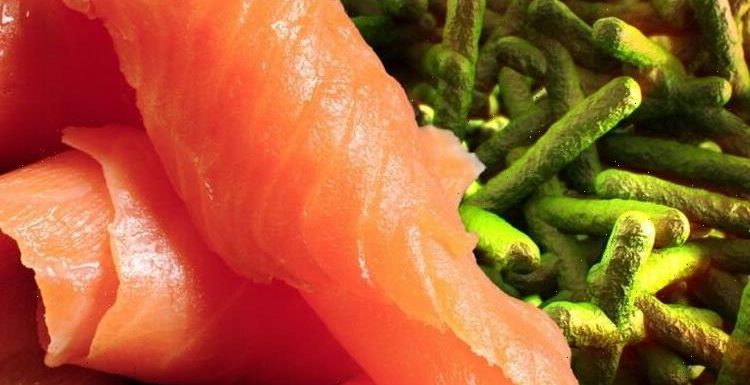
Listeria: Dr Arefa Cassoobhoy reveals how to prevent infection
We use your sign-up to provide content in ways you’ve consented to and to improve our understanding of you. This may include adverts from us and 3rd parties based on our understanding. You can unsubscribe at any time. More info
Amid a surge of cases of listeriosis, the disease caused by the listeria bacterium, several of the country’s food safety bodies have jointly issued an alert over the risks involved in eating smoked fish – especially during pregnancy. Their top tip to avoid infection is that fish be cooked before consumption. They said: “We are working closely with UK partners across government to ensure that this advice is as clear as possible.”
Listeria is widespread in the environment and can contaminate a range of food at low or standard refrigeration temperatures, the UKHSA, Food Standards Agency and Food Standards Scotland said.
While it is of most concern in chilled, ready to eat foods that do not require further cooking, such as smoked fish, “thorough cooking” can destroy the bacteria, they added.
Whole-genome sequencing analysis has identified an outbreak of 12 linked cases of listeriosis in England and Scotland since 2020, six of which were registered this year.
READ MORE: Strengthen immune system by eating oily fish and reducing added sugar, says expert

The majority of these individuals said they had eaten smoked fish.
Tina Potter, head of incidents at the Food Standards Agency, said smoked products do not need to be avoided, but it should be ensured “risks are reduced as far as possible”.
She added: “You can do this by keeping chilled ready-to-eat smoked fish cold, always using products by their use-by date, following the storage and usage instructions on the label, and cooking or reheating smoked fish until it is piping hot right through.”

Ms Potter advised consumers to keep chilled ready-to-eat smoked fish at temperatures of 5C or below.
In case of infection, for most people symptoms will be non-existent or mild, such as vomiting and diarrhoea.
However, pregnant people are at increased risk of developing listeriosis –which can lead to miscarriage, stillbirth, or severe illness in their newborn babies.
DON’T MISS
‘Potential to transform lives’: Diabetes patients fitted with artificial pancreas in trial [INSIGHT]
New Omicron variant symptoms: Why XE variant could be mistaken for common cold [ANALYSIS]
STI – ‘unusual discharge’ is a warning sign of gonorrhoea in men, says NHS [WARNING]
Meanwhile, those with weakened immune systems or over 65 years old could develop more serious infections, including meningitis and severe sepsis.
People taking medication that can weaken the immune system, or who have had an organ transplant are urged to be careful.
As are patients with an alcohol dependency or iron overload.
Professor Saheer Gharbia, interim deputy director gastrointestinal infections and food safety (One Health) at UKHSA, said: “Listeria infection in most people is usually either unnoticed or may cause very mild gastrointestinal illness.
“However, it can have more serious consequences for some people.
“If you have any concerns about your health please speak to your midwife, GP or hospital specialist team.”
Given the ongoing outbreak, advice for avoiding listeriosis infection is being updated on the NHS to include smoked fish as a high-risk product.
Source: Read Full Article